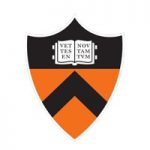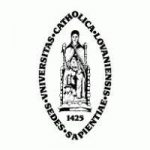项目介绍
COURSES:
Two courses, QCB 515 and COS/QCB 551, are required for all students, as is a Responsible Conduct in Research (RCR) course. Three additional courses must be completed and can be chosen from the following list. Course selections must include at least one course from the quantitative courses list and one course from the biological courses list. Courses not on the approved lists may be taken as electives with approval from the DGS.
Note: The full course of study must be reviewed and approved by the Director of Graduate Studies (DGS).
Quantitative Courses (must take at least one)
- APC 524/MAE 506/AST 506 Software Engineering for Scientific Computing
- CBE 517 Soft Matter Mechanics: Fundamentals & Applications(link is external)
- CHM 503/CBE 524/MSE 514 Introduction to Statistical Mechanics(link is external)
- CHM 515 Biophysical Chemistry I
- CHM 516 Biophysical Chemistry II(link is external)
- CHM 542 Principles of Macromolecular Structure: Protein Folding, Structure, and Design
- COS 511 Theoretical Machine Learning
- COS 524/COS 424 Fundamentals of Machine Learning
- COS 557 Analysis and Visualization of Large-Scale Genomic Data Sets
- COS 597D Advanced Topics in Computer Science: Advanced Computational Genomics
- COS 597F Advanced Topics in Computer Science: Computational Biology of Single Cells(link is external)
- ELE 535 Machine Learning and Pattern Recognition
- MAE 567(link is external)/CBE 568 Crowd Control: Understanding and Manipulating Collective Behaviors and Swarm Dynamics
- MAE 550/MSE 560 Lessons from Biology for Engineering Tiny Devices
- MAT 586/APC 511/MOL 511/QCB 513 Computational Methods in Cryo-Electron Microscopy
- MOL 518 Quantitative Methods in Cell and Molecular Biology
- MSE 504/CHM 560/PHY 512/CBE 520 Monte Carlo and Molecular Dynamics Simulation in Statistical Physics & Materials Science(link is external)
- NEU 437/537 Computational Neuroscience
- NEU 501 Cellular and Circuits Neuroscience
- NEU 560 Statistical Modeling and Analysis of Neural Data(link is external)
- ORF 524 Statistical Theory and Methods
- PHY 561/2 Biophysics
- QCB 505/PHY555 Topics in Biophysics and Quantitative Biology
- QCB 508 Foundations of Statistical Genomics
Biological Courses (must take at least one)
- CHM 403 Advanced Organic Chemistry
- CHM/QCB 541 Chemical Biology II
- EEB 504 Fundamental Concepts in Ecology, Evolution, and Behavior II
- EEB 507 Recent Research in Population Biology
- MAE 566 Biomechanics and Biomaterials: From Cells to Organisms
- MOL 504 Cellular Biochemistry
- MOL 506 Cell Biology and Development
- MOL 518 Quantitative Methods in Cell and Molecular Biology(link is external)
- MOL 521 Systems Microbiology and Immunology
- MOL 523 Molecular Basis of Cancer
- MOL 559 Viruses: Strategy & Tactics
- QCB 490 Molecular Mechanisms of Longevity
Selected undergraduate courses of interest
(Note: these do not count towards course requirements)
- APC 350 Introduction in Differential Equations
- CBE 448 Introduction to Nonlinear Dynamics
- COS 226 Algorithms and Data Structures
- EEB 324 Theoretical Ecology
- MOL/QCB 485 Mathematical Models in Biology
- ORF/MAT 309/380 Probability and Stochastic Systems
- ORF 406 Statistical Design of Experiments
- QCB 302 Research Topics in QCB
PRE-GENERALS REQUIREMENT(S):
Research Colloquium: QCB Graduate Colloquium
QCB Graduate Colloquium is a research colloquium that has been developed for QCB graduate students, usually held on an afternoon during the fall and spring terms. Graduate students have the opportunity to present their research to peers.
Rotations
All students are required to complete a minimum of three research rotations during their first year of graduate study, with a maximum of four, to explore possible research advisers.GENERAL EXAM:
The general examination is usually taken in January of the second year, and consists of a 7 page written thesis proposal and one 2-hour oral session on the student’s thesis proposal.QUALIFYING FOR THE M.A.:
The Master of Arts (M.A.) degree is normally an incidental degree on the way to full Ph.D. candidacy and is earned after a student successfully passes the general examination. It may also be awarded to students who, for various reasons, leave the Ph.D. program, provided the student has completed all coursework, pre-generals requirements, and the written portion of the general examination.TEACHING:
A student must teach a minimum of one full-time assignment (6 AI hours), or teach two part-time assignments of 2 or more AI hours each. Students will typically teach in year 4 of the program.POST-GENERALS REQUIREMENT(S):
Committee Meetings
Research progress is overseen by a thesis committee selected by the student after passing the general exam. The committee consists of the thesis adviser and two additional faculty members. At least one member must be QCB faculty. The thesis committee must be approved by the DGS.DISSERTATION AND FPO:
The dissertation and final public oral exam (FPO) are required for all Ph.D. students. All students must write and successfully defend their dissertation according to Graduate School rules and requirements.
联系方式
电话: 609-258-3000相关项目推荐
KD博士实时收录全球顶尖院校的博士项目,总有一个项目等着你!






